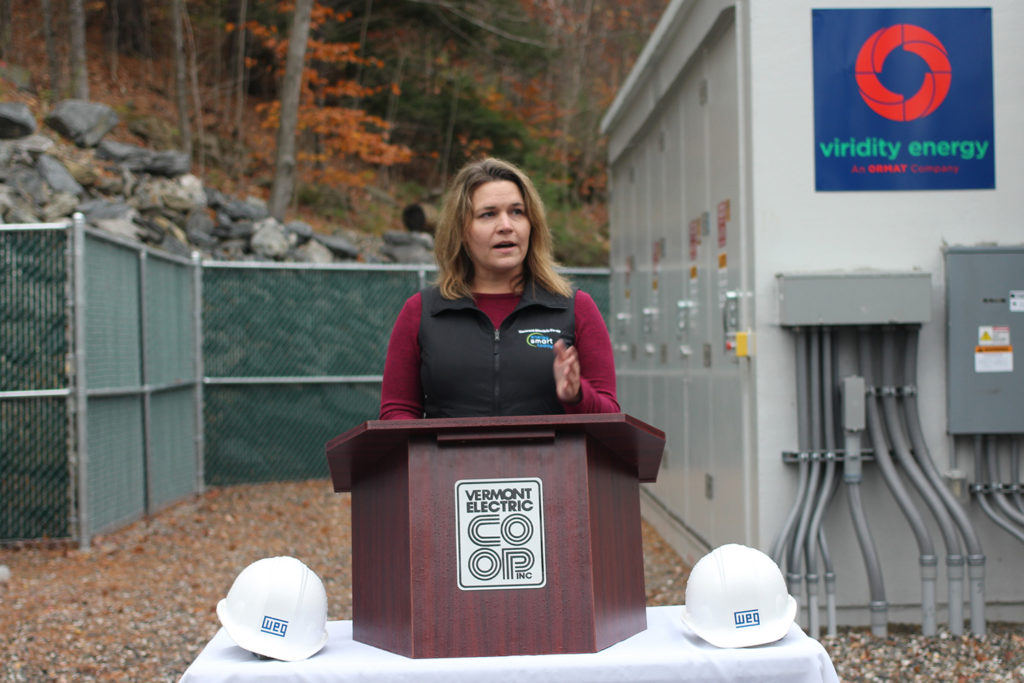
They don’t look like much. Just a couple of gray, metal, shipping-container-sized cabinets. But locked inside may well be the future of the grid, and a growing number of electric cooperatives hold the key.
Vermont Electric Cooperative is one of them.
The co-op based in Johnson began operating a utility-scale lithium-ion battery in July and has already saved its members $90,000 in peak capacity market costs.
“The first month of operating the battery, we hit the New England peak and got immediate value right out of gate,” said VEC CEO Rebecca Towne. “That value goes directly to the member. It’s all about saving money for customers.”
The 1-megawatt/4 megawatt-hour system allows VEC to discharge 400 MWhs onto the grid when it’s needed most to reduce peak capacity market costs. The co-op’s engineering and operations team forecasts peaks to call on the stored energy.
VEC faces 13 demand peaks a year: one each month in Vermont and a larger, more costly peak charge from the New England ISO in the summer.
“We feel confident we will hit 70% of peaks in 400 hours,” Towne said.
Towne, the business partners in the battery project and co-op members recently gathered to mark the initial six months of service at the battery site in Hinesburg, where VEC has a substation and solar panels.
VEC signed a 10-year lease with Viridity Energy Solutions in 2018 for access to 400 kilowatt-hours of storage. Another company, WEG Electric, did the technical design, permitting and installation.
Towne said working with partners has allowed VEC to avoid the upfront capital costs of buying a battery storage system.
“We’ve proved it is a doable model,” she said. “When other co-ops get comfortable with this model, it will be easy to replicate.”
The project has drawn enthusiasm from co-op members not only for the financial reward but for reducing the co-op’s reliance on the region’s fossil-fuel-based peaking plants.
“It’s been a win-win-win,” said Towne. “Battery storage is going to be an important part of the grid as it continues to evolve to be more distributive and intermittent and focused on carbon reduction. Energy storage, particularly as it drops in cost, will be a critical technology in achieving those goals.”
Cathy Cash is a staff writer at NRECA.